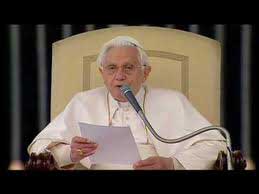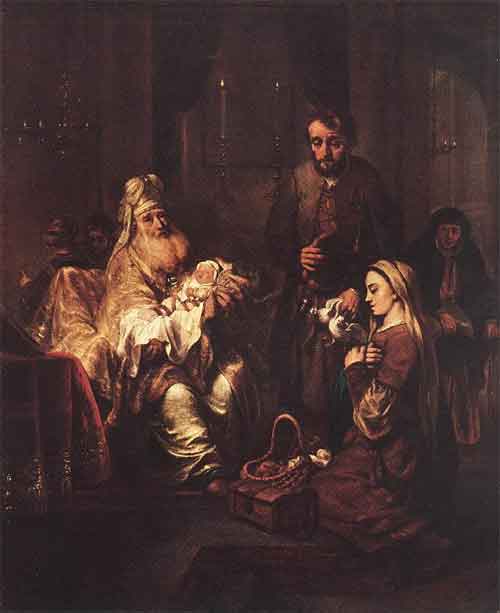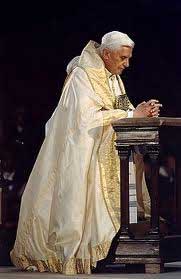[powerpress]
Msgr. Esseff reflects on Matthew chap 18 v 21-35.  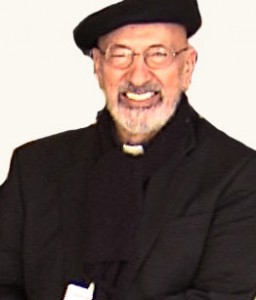 He shares the stories of a woman named Immaculee from Rwanda and young girl named Maria from Lebanon and the damage done by the hatred which is manifested in the world.  We have a capacity for communion…24 hours every day, 7 days a week.  How does that look in the
He shares the stories of a woman named Immaculee from Rwanda and young girl named Maria from Lebanon and the damage done by the hatred which is manifested in the world.  We have a capacity for communion…24 hours every day, 7 days a week.  How does that look in the  relationship found in marriage?  From childhood, there are deep wounds we carry from our parents…from siblings…or from others. What can cause those wounds?  The bitterness and resentment that we carry…the damage it does to us.  What is the remedy?  The joy of forgiveness…and forgetting.  Msgr. Esseff shares a poignant story of a man named John, and how he came to forgive what many would find “unforgivable”.
relationship found in marriage? Â From childhood, there are deep wounds we carry from our parents…from siblings…or from others. What can cause those wounds? Â The bitterness and resentment that we carry…the damage it does to us. Â What is the remedy? Â The joy of forgiveness…and forgetting. Â Msgr. Esseff shares a poignant story of a man named John, and how he came to forgive what many would find “unforgivable”.
This is the prayer mentioned by Msgr. Esseff in the talk...click here
Be sure to visit Msgr. Esseff’s website….”Building A Kingdom of Love”
Tags: catholic, catholic podcast, catholic prayer, cathollc spirituality, forgiveness, msgr. john esseff, reconciliation, unforgiveness
This entry was posted on Saturday, February 4th, 2012 at 3:49 pm
You can follow any responses to this entry through the RSS 2.0 feed.
VATICAN CITY, 1 FEB 2012 (VIS) – This morning in the Paul VI Hall the Holy Father received thousands of pilgrims from around the world in his weekly general audience. As part of a series of catecheses dedicated to the prayers pronounced by Christ, he focused his remarks on Jesus’ prayer in the Garden of Gethsemane.
Mark the Evangelist narrates how, following the Last Supper, Jesus went to the Mount of Olives and readied Himself for personal prayer. “But this time”, the Pope said, “something new occurred; it seemed that He did not want to remain alone. Many times in the past Jesus had moved away from the crowds, even from His own disciples. … However, in Gethsemane he invited Peter, James and John to stay close by; the same disciples who had accompanied Him during the Transfiguration.
“The proximity of these three during the prayer at Gethsemane is significant”, Benedict XVI added. It represents “a request for solidarity at the moment in which He felt the approach of death. Above all it was a closeness in prayer, an expression of unity with Him at the moment in which He was preparing to accomplish the Father’s will to the end, an invitation to all disciples to follow Him on the path of the Cross”.
Jesus’ words to the three disciples – “I am deeply grieved, even to death; remain here and keep awake” – show that He was feeling “fear and anguish at that ‘Hour’, experiencing the ultimate profound solitude as God’s plan was being accomplished. Jesus fear and anguish comprehend all the horror that man feels at the prospect of his own death, its inexorable certainty and the perception of the burden of evil which affects our lives”.
Having invited His disciples to keep awake, Jesus moved away from them. Referring to the Gospel of St. Mark, the Pope noted that Jesus “threw Himself to the ground: a position for prayer which expresses obedience to the Father’s will, an abandonment of self with complete trust in Him”. Jesus then asks the Father that, if possible, the hour might pass from Him. “This is not just the fear and anguish of man in the face of death”, the Holy Father explained, “but the distress of the Son of God Who sees the terrible accumulation of evil He must take upon Himself, in order to overcome it and deprive it of power”.
In this context, Benedict XVI invited the faithful to pray to God, placing before Him “our fatigue, the suffering of certain situations and of certain days, our daily struggle to follow Him and to be Christians, and the burden of evil we see within and around us, that He may give us hope, make us aware of His closeness and give us a little light on life’s journey”.
Returning then to Jesus’ prayer, the Pope focused on “three revealing passages” in Christ’s words: “Abba, Father, for you all things are possible; remove this cup from me; yet, not what I want but what you want”. Firstly, Benedict XVI said, the Aramaic word “Abba” is used by children to address their fathers, “therefore it express Jesus relationship with God the
Father, a relationship of tenderness, affection and trust”. Secondly, Jesus’ words contain an acknowledgment of the Father’s omnipotence “introducing a request in which, once again, we see the drama of Jesus’ human will in the face of death and evil. … Yet the third expression … is the decisive one, in which the human will adheres fully to the divine will. … Jesus tells us that only by conforming their will to the divine will can human beings achieve their true stature and become ‘divine’. … This is what Jesus does in Gethsemane. By transferring human will to the divine will the true man is born and we are redeemed”.
When we pray the Our Father “we ask the Lord that ‘your will be done, on earth as it is in heaven’. In other words, we recognise that God has a will for us and with us, that God has a will for our lives and, each day, this must increasingly become the reference point for our desires and our existence. We also recognise that … ‘earth’ becomes ‘heaven’ – the place where love, goodness, truth and divine beauty are present – only if the will of God is done”.
In our prayers “we must learn to have greater trust in Divine Providence, to ask God for the strength to abandon our own selves in order to renew our ‘yes’, to repeat to Him ‘your will be done’, to conform our will to His. This is a prayer we must repeat every day, because it is not always easy to entrust oneself to the will of God”.
The Gospel says that the disciples were unable to remain awake for Christ, and Pope Benedict concluded his catechesis by saying: “Let us ask the Lord for the power to keep awake for Him in prayer, to follow the will of God every day even if He speaks of the Cross, to live in ever increasing intimacy with the Lord and bring a little of God’s ‘heaven’ to this ‘earth'”.
Following the catechesis the Holy Father delivered greetings in a number of languages to the pilgrims filling the Paul VI Hall. They included a group of British military chaplains, faithful from Hong Kong and South America, bishops friends of the Sant’Egidio Community from Europe, Asia and Africa, as well as young people and the sick.
AG/ VIS 20120201 (940)
Tags: benedict xvi, catholic, catholic podcast, catholic prayer, cathollc spirituality, pope benedict, pope benedict xvi, prayer
This entry was posted on Saturday, February 4th, 2012 at 12:55 am
You can follow any responses to this entry through the RSS 2.0 feed.
On the afternoon of Wednesday 2nd of February , Feast of the Presentation of the Lord , Pope Benedict XVI will preside over vespers in Saint Peter’s Basilica at 5.30 pm.
[powerpress = “Vatican_Radio”]
In an effort to prepare for this evening celebration , on this day which is also dedicated to the XVI World Day of Consecrated Life we bring you a musical meditation focusing on the Presentation: “Mary and Joseph came to the Temple to present the Child Jesus to the Lord as the Law required.The Fourth Joyful Mystery of the Rosary focuses on the Presentation in the Temple. We celebrate it liturgically forty days after Christmas on the Feast of Candlemas , when we process with lighted candles , bearing witness before the world to the light of Christ”.
In this programme presented by music historian Monsignor Philip Whitmore you can listen to a setting of the Magnificat antiphon for the first vespers of the Feast of the Presentation by Catholic composer in the reign of Queen Elizabeth I , William Byrd.
A programme produced by Veronica Scarisbrick .
Tags: catholic, catholic podcast, catholic prayer, cathollc spirituality, musical meditation, pope benedict xvi, presentation in the temple, Vatican Radio From Vatican Radio
This entry was posted on Thursday, February 2nd, 2012 at 7:02 am
You can follow any responses to this entry through the RSS 2.0 feed.
“The favor of God was upon him”
[powerpress]
an excerpt from today’s reflection by Don Schwager:
Simeon blessed Mary and Joseph and he prophesied to Mary about the destiny of this child and the suffering she would undergo for his sake. There is a certain paradox for those blessed by the Lord. Mary was given the blessedness of being the mother of the Son of God. That blessedness also would become a sword which pierced her heart as her Son died upon the 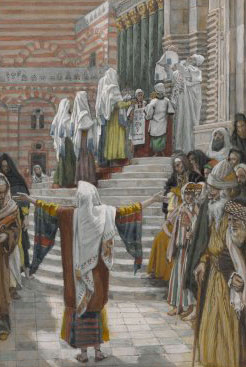 cross. She received both a crown of joy and a cross of sorrow. But her joy was not diminished by her sorrow because it was fueled by her faith, hope, and trust in God and his promises. Jesus promised his disciples that “no one will take your joy from you” (John 16:22). The Lord gives us a supernatural joy which enables us to bear any sorrow or pain and which neither life nor death can take way. Do you know the joy of a life fully surrendered to God with faith and trust?
cross. She received both a crown of joy and a cross of sorrow. But her joy was not diminished by her sorrow because it was fueled by her faith, hope, and trust in God and his promises. Jesus promised his disciples that “no one will take your joy from you” (John 16:22). The Lord gives us a supernatural joy which enables us to bear any sorrow or pain and which neither life nor death can take way. Do you know the joy of a life fully surrendered to God with faith and trust?
Simeon was not alone in recognizing the Lord’s presence in the temple. Anna, too, was filled with the Holy Spirit. She was found daily in the temple, attending to the Lord in prayer and speaking prophetically to others about God’s promise to send a redeemer. Supernatural hope grows with prayer and age! Anna was pre-eminently a woman of great hope and expectation that God would fulfill all his promises. She is a model of godliness to all believers as we advance in age. Advancing age and the disappointments of life can easily make us cynical and hopeless if we do not have our hope placed rightly. Anna’s hope in God and his promises grew with age. She never ceased to worship God in faith and to pray with hope. Her hope and faith in God’s promises fueled her indomitable zeal and fervor in prayer and service of God’s people. What do you hope for? The hope which God places in our heart is the desire for the kingdom of heaven and eternal life as our happiness. How do we grow in hope? By placing our trust in the promises of Jesus Christ and relying not on our own strength, but on the grace and help of the Holy Spirit. Does your hope and fervor for God grow with age?
“Lord Jesus, may I never cease to hope in you and to trust in your promises. Fill me with your Holy Spirit that I may always recognize your saving presence in my life. Help me to point others to Christ and to be an example of faith and devotion as Simeon and Anna were to their generation.”
for the full reflection visit : Daily Reading and Meditation
Tags: catholic, catholic podcast, catholic prayer, cathollc spirituality, don schwager, feast of the presentation, gospel of luke
This entry was posted on Thursday, February 2nd, 2012 at 12:15 am
You can follow any responses to this entry through the RSS 2.0 feed.
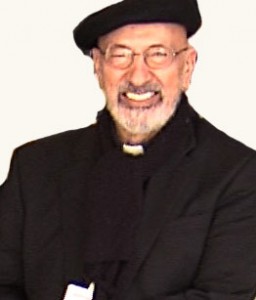 In January 2012, Msgr. Esseff conducted a weekend retreat for the Deacons and Deacon-Candidates and their wives of the Diocese of Fargo.
In January 2012, Msgr. Esseff conducted a weekend retreat for the Deacons and Deacon-Candidates and their wives of the Diocese of Fargo.
[powerpress]
The subject is SINFULNESS and the Sacrament of Reconciliation.  The crucifixion and death of Jesus and what Jesus “sees” from the Cross. We will not grow in the Divine life given to us in Baptism if we do not become fully aware of our sinfulness in direct relation to our blessedness.  The Devil is aware of  Christ in us; he hates the beauty of that union. The Enemy’s purpose is to destroy that relationship.  Why would we sin and endanger our union with Christ?  Sin is not just breaking a commandment, it is the destruction of the Divine life in us.  Sin is a 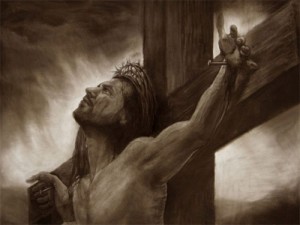 mystery; it is a darkness.  Our souls are a battleground…between the forces of light and the forces of darkness, the forces of love and the forces of hatred…a complete head on crash in every soul.
mystery; it is a darkness.  Our souls are a battleground…between the forces of light and the forces of darkness, the forces of love and the forces of hatred…a complete head on crash in every soul.
Msgr. Esseff then instructs on the importance of enlisting the aid of the Holy Spirit to truly prepare us for the Sacrament of Reconciliation.  It’s only through the aid of the Holy Spirit can God reveal to us what truly separates us from the  Father.  He reveals to us our “core wound”…the tendency in our behavior that causes us to sin.  Often we only pay attention to the symptoms of the wound, we need the Holy Spirit to show us the cause.  The deeper we go into our sinfulness the deeper the experience of the Divine Mercy.
Be sure to visit Msgr. Esseff’s website “Building a Kingdom of Love”
Tags: catholic, catholic podcast, catholic prayer, cathollc spirituality
This entry was posted on Wednesday, February 1st, 2012 at 8:58 am
You can follow any responses to this entry through the RSS 2.0 feed.
Episode 4 Beginning to Pray: Â “Heaven in Faith” Â Day 2 Prayer 2 – “Hurry and Come Down”
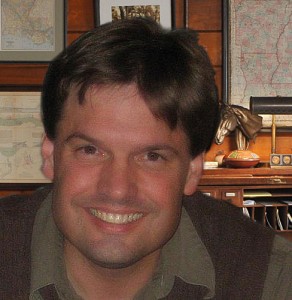
[powerpress]
Dr. Anthony Lilles is a Catholic husband and father of three teaching Spiritual Theology at St. John Vianney Theological Seminary. He  teaches spiritual theology and spiritual direction to transitional deacons, and the spiritual classics to the men who enter the Spirituality Year, a year of prayer in preparation for seminary formation.  He is the author of the “Beginning to Pray”  catholic blog spot.
From “Heaven in Faith: Day 2 Prayer 2” found in The Complete Works vol 1:
8. “As long as our will has fancies that are foreign to divine union, whims that are now yes, now no, we are like children: Â we do not advance with giant steps in love for fire has not yet burnt up all the alloy; the gold is not pure; we are still seeking ourselves; God has not consumed” all our hostility to Him. Â But when the boiling cauldron has consumed “every imperfect love, every imperfect sorrow, every imperfect fear,” “then love is perfect and the golden ring of our alliance is larger than Heaven and earth. Â The is the secret cellar in which love places his elect,” this “love leads us by ways and paths known to him alone and he leads us with no turning back, for we will not retrace our steps.”
For other episodes in the series visit the Discerning Hearts page for Dr. Anthony Lilles
We would like to offer heartfelt thanks to
Miriam Gutierrez for providing for us “the voice” of Blessed Elizabeth for this series
Tags: Anthony Lilles, blessed elizabeth of the trinity, carmelite, catholic, catholic podcast, catholic prayer, cathollc spirituality, heaven in faith, Spiritual Theology, St. John Vianney Theological Seminary
This entry was posted on Tuesday, January 31st, 2012 at 7:15 am
You can follow any responses to this entry through the RSS 2.0 feed.
 In January 2012, Msgr. Esseff conducted a weekend retreat for the Deacons and Deacon-Candidates and their wives of the Diocese of Fargo.
In January 2012, Msgr. Esseff conducted a weekend retreat for the Deacons and Deacon-Candidates and their wives of the Diocese of Fargo.
[powerpress]
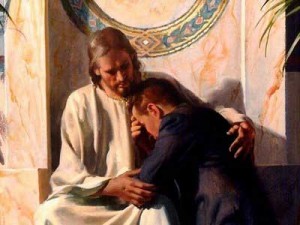 The subject is GRACE and the life of Jesus we receive in Baptism.  From Ephesians Chap 4 v 7 -16, Msgr. Esseff discusses what he calls “that most magnificent passage” which transforms us.  What made the transformation occur?  What is Original Sin? He reflects on the fall of our first parents and the broken relationship with God, and God’s gift of the Son.  The importance of the Blessed Virgin Mary…the first person to receive the revelation of the Trinity.  The tremendous moment of PENTECOST.  What is Sanctifying Grace?  What does it mean to have Jesus within us and what are we called to do?  How can we forgive, especially the deepest wounds?  Being like Jesus, we depend completely on the Father.  The lie of the “I can do anything” attitude.  The beauty of Galatians 2:20.  Ask God to help you discover your true self in Him.
The subject is GRACE and the life of Jesus we receive in Baptism.  From Ephesians Chap 4 v 7 -16, Msgr. Esseff discusses what he calls “that most magnificent passage” which transforms us.  What made the transformation occur?  What is Original Sin? He reflects on the fall of our first parents and the broken relationship with God, and God’s gift of the Son.  The importance of the Blessed Virgin Mary…the first person to receive the revelation of the Trinity.  The tremendous moment of PENTECOST.  What is Sanctifying Grace?  What does it mean to have Jesus within us and what are we called to do?  How can we forgive, especially the deepest wounds?  Being like Jesus, we depend completely on the Father.  The lie of the “I can do anything” attitude.  The beauty of Galatians 2:20.  Ask God to help you discover your true self in Him.
Be sure to visit Msgr. Esseff’s website “Building a Kingdom of Love”
Tags: catholic, catholic podcast, catholic prayer, cathollc spirituality, Esseff, John Esseff, msgr. john esseff, the Life of Jesus
This entry was posted on Tuesday, January 31st, 2012 at 12:04 am
You can follow any responses to this entry through the RSS 2.0 feed.
Episode 3- The School of Prayer: Reflections on the teachings of Pope Benedict XVI –  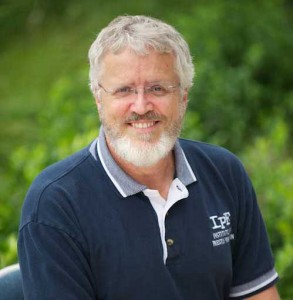 Abraham the great Patriarch who prays in intercession for Sodom and Gomorrah.  The mystery of intercessory prayer and God’s great mercy.  When we persist in prayer, like Abraham, the more we come to know God and trust in His love for us.  How sin corrupts our capacity to receive God’s movement of protection and love.  How the sacrifice of Christ opens the door to the mystery.  If we can learn how to pray, then we learn how to be loved.  How do we pray for others?
Abraham the great Patriarch who prays in intercession for Sodom and Gomorrah.  The mystery of intercessory prayer and God’s great mercy.  When we persist in prayer, like Abraham, the more we come to know God and trust in His love for us.  How sin corrupts our capacity to receive God’s movement of protection and love.  How the sacrifice of Christ opens the door to the mystery.  If we can learn how to pray, then we learn how to be loved.  How do we pray for others?
[powerpress]
Deacon James Keating, PhD, the director of Theological Formation for the Institute for Priestly Formation, located at Creighton University, in Omaha.
From  Pope Benedict’s 3 audience on prayer:
This is the power of prayer. For through intercession, the prayer to God for the salvation of others, the desire for salvation which God nourishes for sinful man is demonstrated and expressed. Evil, in fact, cannot be accepted, it must be identified and destroyed through punishment: The destruction of Sodom had exactly this function.
For more information on the “Institute of Priestly Formation†and for other material available by Deacon Keating, just click here
Don’t forget to pickup a copy of “Communion with Christ†, it is one of the best audio sets on prayer…ever!
Check out Deacon Keating’s “Discerning Heart†page
Tags: catholic, catholic podcast, catholic prayer, cathollc spirituality, james keating, pope benedict, pope benedict xvi
This entry was posted on Monday, January 30th, 2012 at 8:47 am
You can follow any responses to this entry through the RSS 2.0 feed.
 In January 2012, Msgr. Esseff conducted a weekend retreat for the Deacons and Deacon-Candidates and their wives of the Diocese of Fargo.
In January 2012, Msgr. Esseff conducted a weekend retreat for the Deacons and Deacon-Candidates and their wives of the Diocese of Fargo.
[powerpress]
The subject is PRAYER.  From Luke Chap 11 v 1-13, Msgr. Esseff discusses how little we know how to pray and how to receive.  He reflects on the Blessed Virgin Mary’s teaching to St. Catherine Laboure about prayer.  Then he offers the proper movement of prayer:
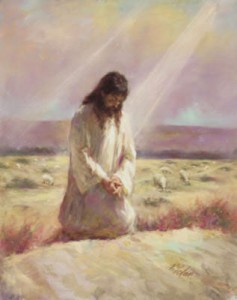
1. Â “Be there with Him and for Him”
2. Â “You have to want Him” Â Intensify the desire of relationship with God.
3. Â “Listen to Him”
- A – Acknowledge (What’s going on in your heart)
- R – Relay that to God
(Tell God – Father, Son and the Holy Spirit
and the Blessed Virgin Mary – about that experience) - R – Receive (What is God going to tell me about what I told Him)
- R – Respond
4. Â “Let Him” Â (Surrender to God)
What happens when we encounter the Holy Eucharist
What happens when we encounter the Living Word of God
Be sure to visit Msgr. Esseff’s website “Building a Kingdom of Love”
Tags: catholic, catholic podcast, catholic prayer, cathollc spirituality, Esseff, John Esseff, msgr. john esseff, prayer
This entry was posted on Sunday, January 29th, 2012 at 5:09 pm
You can follow any responses to this entry through the RSS 2.0 feed.
In January 2012, Msgr. Esseff conducted a weekend retreat for the Deacons and Deacon-Candidates and  their wives of  the Diocese of Fargo.
their wives of  the Diocese of Fargo.
[powerpress]
 On the evening of the start of the retreat, Msgr. Esseff gave a talk to prepare the hearts and minds of the participants. He explains the importance and value of SILENCE and listening to God. We may be doing too much talking to God and not enough listening. He provides the structure of the hours of prepare and scripture to reflect on and how to pray for the reception of a particular grace.
On the evening of the start of the retreat, Msgr. Esseff gave a talk to prepare the hearts and minds of the participants. He explains the importance and value of SILENCE and listening to God. We may be doing too much talking to God and not enough listening. He provides the structure of the hours of prepare and scripture to reflect on and how to pray for the reception of a particular grace.
Msgr. Esseff offers Ephesians 3:14-20, in particular, for reflection. He will later in the talk, give specific scripture for reflection for the hours of prayer. Â He discusses our specific calling…from baptism to marriage, the diaconate…what is our identity as Christian.
Be sure to visit Msgr. Esseff’s website “Building A Kingdom of Love”
Tags: catholic, catholic podcast, catholic prayer, cathollc spirituality, deacons, John Esseff, marriage, Msgr, msgr. john esseff, retreat
This entry was posted on Saturday, January 28th, 2012 at 4:22 pm
You can follow any responses to this entry through the RSS 2.0 feed.
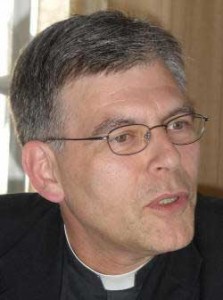 “Compelling” just isn’t a big enough word to capture the work that Fr. Paul Hamans has given us in this book. Edith Stein and Companions on the Way to Auschwitz” not only gives us a portrait of the great saint, but gives us the faces and insights into the hearts of those we call “companions”…be prepared to be both heartbroken and inspired at the same time.
“Compelling” just isn’t a big enough word to capture the work that Fr. Paul Hamans has given us in this book. Edith Stein and Companions on the Way to Auschwitz” not only gives us a portrait of the great saint, but gives us the faces and insights into the hearts of those we call “companions”…be prepared to be both heartbroken and inspired at the same time.
[powerpress]
 Find this book at the Ignatius Press website
Find this book at the Ignatius Press website
-“An important, beautiful, heart-wrenching book. These Jewish Catholics, were doubly blessed, for they were martyred twice – once, when they entered the Catholic Church at the cost of losing their families, their homes, their livelihoods, and a second time when they were sent to the extermination camp as Jewish Catholics. Martyred for their Catholic faith, martyred for their Jewish blood. The faith, dedication to God, and love of the Church that they showed as they underwent this double martyrdom are inspiring reminders of what the true stakes and rewards of our lives as Catholics are.”
—Roy Schoeman, Author, Salvation is From the Jews
Tags: catholic, catholic podcast, catholic prayer, cathollc spirituality
This entry was posted on Friday, January 27th, 2012 at 7:51 am
You can follow any responses to this entry through the RSS 2.0 feed.
Episode 2 The Daily Prayer of Discernment: The Ignatian Wisdom of the Examen Prayer with Fr. Timothy Gallagher. 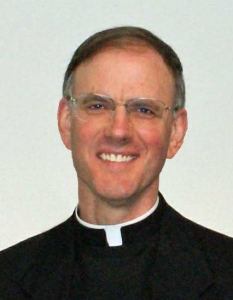  The First Step in the Examen Prayer:  Gratitude.  Taking time out of the day when our hearts are free to receive the Lord’s presence.  Prayer always takes two persons in relationship…ourselves and God.  Then together with the Lord, we see what the gifts of love God has poured out upon us.  The key in this first step, is not to look for our missteps (that may come later), but to look for the gifts and give thanks.
 The First Step in the Examen Prayer:  Gratitude.  Taking time out of the day when our hearts are free to receive the Lord’s presence.  Prayer always takes two persons in relationship…ourselves and God.  Then together with the Lord, we see what the gifts of love God has poured out upon us.  The key in this first step, is not to look for our missteps (that may come later), but to look for the gifts and give thanks.
[powerpress]
As outlined from the Spiritual Exercises of St. Ignatius of Loyola
(translated from the autograph by Fr. E. Mullan, S.J. Â 1909Â in the public domain)
METHOD FOR MAKING THE GENERAL EXAMEN
It contains in it five Points.First Point. The first Point is to give thanks to God our Lord for the benefits received.
Second Point. The second, to ask grace to know our sins and cast them out.
Third Point. The third, to ask account of our soul from the hour that we rose up to the present Examen, hour by hour, or period by period: and first as to thoughts, and then as to words, and then as to acts, in the same order as was mentioned in the Particular Examen.
Fourth Point. The fourth, to ask pardon of God our Lord for the faults.
Fifth Point. The fifth, to purpose amendment with His grace.OUR FATHER.
Father Timothy M. Gallagher, O.M.V., was ordained in 1979 as a member of the Oblates of the Virgin Mary, a religious community dedicated to retreats and spiritual formation according to the Spiritual Exercises of St. Ignatius. Â Fr. Gallagher is featured on the EWTN series “Living the Discerning Life: Â The Spiritual Teachings of St. Ignatius of Loyola”. Â For more information on books and audio available for purchase from Fr. Timothy Gallagher check out his website: www.frtimothygallagher.org
For the other episodes in this series check out
Fr. Timothy Gallagher’s “Discerning Hearts†page
Tags: catholic, catholic podcast, catholic prayer, cathollc spirituality, Daily Prayer, Timothy Gallagher
This entry was posted on Thursday, January 26th, 2012 at 6:51 am
You can follow any responses to this entry through the RSS 2.0 feed.
Organized Religion?
[powerpress]
It’s something we’ve all heard before: I believe in God, but not organized religion.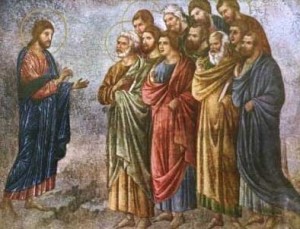
But as Catholics we believe that Jesus started a Church—yes an organized religion, if you will.
The Church is a gift to the world, which God has ordained as the vehicle in which we are sanctified and grow on the way to our heavenly destination.
Above all, the Catholic Church is a family. Man is not an island, as it was once famously said, and we need the community found in our brothers and sisters in the Faith.
A visible Church is necessary for the dispensing of the seven sacraments, which Jesus instituted for the forgiveness of sins and growth in grace.
And God has always desired that His people gather to give Him glory by corporate, liturgical worship and sacrifice, which is fulfilled in the New Covenant by the Holy Mass.
Yes, the organized institution of the Church has often had its share of scandals and sins. The human face of the Church can be messy and imperfect. But God does not desire for us to escape to a spiritual island or alternative religion, but to serve Him and His people in the Church He founded and has promised to be with until He returns in glory.
Tags: catholic, catholic church, catholic podcast, catholic prayer, cathollc spirituality, Organized Religion, religion, visible Church
This entry was posted on Wednesday, January 25th, 2012 at 7:56 am
You can follow any responses to this entry through the RSS 2.0 feed.
Episode 3 Beginning to Pray: Â “Heaven in Faith” Â Day 2 Prayer 1 – “The Kingdom of God is Within You”

[powerpress]
Dr. Anthony Lilles is a Catholic husband and father of three teaching Spiritual Theology at St. John Vianney Theological Seminary. He  teaches spiritual theology and spiritual direction to transitional deacons, and the spiritual classics to the men who enter the Spirituality Year, a year of prayer in preparation for seminary formation.  He is the author of the “Beginning to Pray”  catholic blog spot.
From “Heaven in Faith: Day 2 Prayer 1” found in The Complete Works vol 1:
6. The same saint also says that “God is the center of the soul. Â So when the soul with all” its “strength will know God perfectly, love and enjoy Him fully, then it will have reached the deepest center that can be attained in Him.” Â Before attaining this, the soul is already “in God who is its center,” “but it is not yet in its deepest center, for it can still go further. Â Since love is what unites us to God, the more intense this love is, the more deeply the soul enters into God and the more it is centered in Him. Â When it “possess even one degree of love it is already in its center”; but when this love has attained its perfection, the soul will have penetrated into its deepest enter. Â There it will be transformed to the point of becoming very like God.”
For other episodes in the series visit the Discerning Hearts page for Dr. Anthony Lilles
We would like to offer heartfelt thanks to
Miriam Gutierrez for providing for us “the voice” of Blessed Elizabeth for this series
Tags: blessed elizabeth of the trinity, carmelite, catholic, catholic podcast, catholic prayer, cathollc spirituality, heaven in faith
This entry was posted on Tuesday, January 24th, 2012 at 12:50 am
You can follow any responses to this entry through the RSS 2.0 feed.
Mark breaks open St. Paul’s letter to the Timothy–
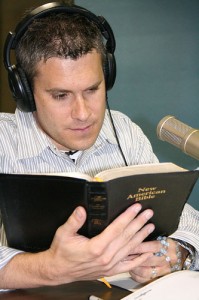
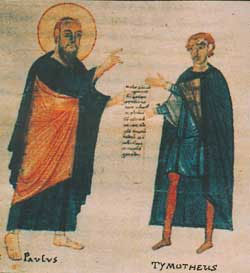 Exactly who was St. Paul writing to in his letter to Timothy? What was the purpose of the letter? Â What was the message? Â How does it apply to our lives today?
Exactly who was St. Paul writing to in his letter to Timothy? What was the purpose of the letter? Â What was the message? Â How does it apply to our lives today?
[powerpress]
Mark Hart is an author, speaker, director and teacher, Mark’s work both written and spoken, is known across the country and world. While he serves as the Vice President of LIFE TEEN, he is known to tens of thousands simply as the “Bible Geek ®†Mark passionately echoes the gospel to all he encounters. He is as deep as he is funny, and his love for his wife and daughters is second only to his immense love for Jesus Christ.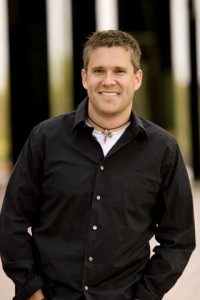
Visit Mark at www.lifeteen.com
Tags: catholic, catholic podcast, catholic prayer, cathollc spirituality, life teen, mark hart, st. paul, st. timothy, Timothy Mark
This entry was posted on Tuesday, January 24th, 2012 at 12:27 am
You can follow any responses to this entry through the RSS 2.0 feed.

